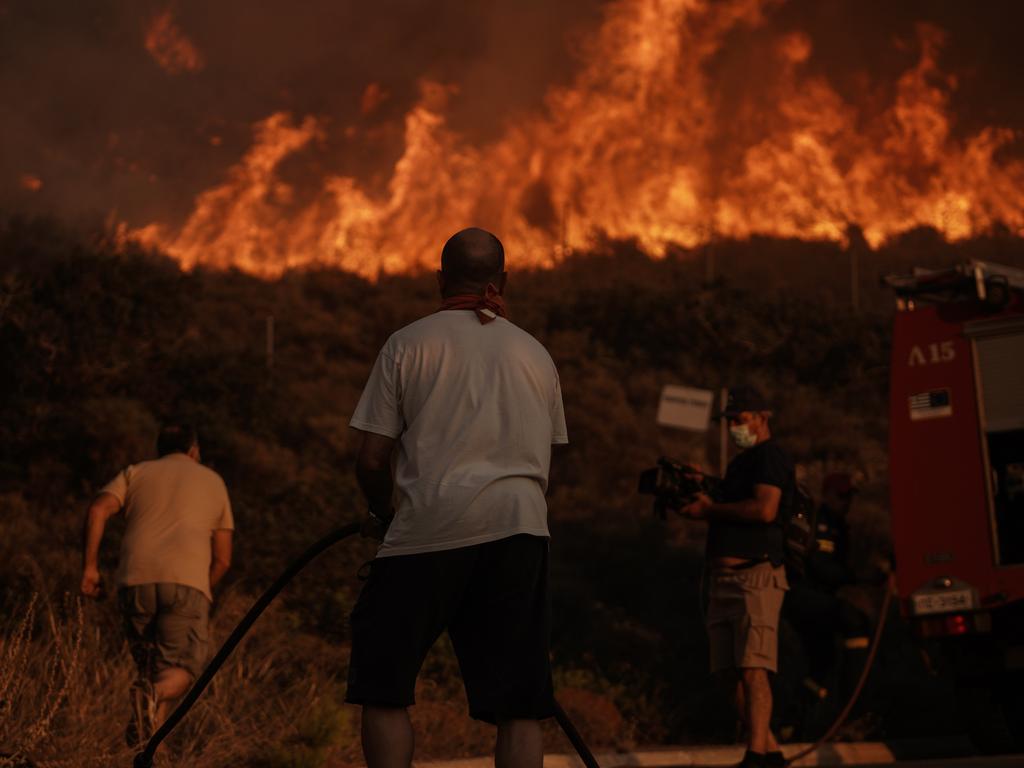Australians are being kept in the dark by the federal government about the dire national security consequences of climate change, including the possibility of climate-induced political upheavals in the Asia-Pacific, a group of leading defence figures has warned.
Former Defence Force chief Chris Barrie and other former senior personnel will urge the government to release a declassified version of a top-secret climate security threat assessment and to develop the country’s first national climate security strategy during a visit to Parliament House on Wednesday.
The Office of National Intelligence delivered a landmark report on external climate risks last year, but the government has resisted calls from crossbenchers and the Greens to release a redacted version of the report to the public.
“Climate change now poses the greatest threat to our security and the government should be engaging the electorate to build understanding of climate risks and how to respond,” said Barrie, who led the Defence Force from 1998 to 2002.
“Instead, the government has a strategy of non-engagement when it comes to the most significant threat to our future. That is a fatal mistake.”
Independent MP Zali Steggall, who organised a briefing for MPs with the Australian Security Leaders Climate Group, said food and water shortages caused by rising temperatures would probably have profound consequences for Pacific nations and therefore Australia.
“We have to ask: what does a breakdown of democracy look like in our region?” she said, adding that the geopolitical risks of climate change outweighed that of foreign influence by the Chinese Communist Party.
“The government’s refusal to share its climate risk assessment is a disservice to the Australian people, who deserve to know about the risks posed by worsening climate change and the strategies that will be required to prepare and protect our country as these risks escalate,” Steggall said.
“Concerns such as mass population displacement, food scarcity, the increasing frequency and severity of natural disasters, and the need to provide substantial aid packages to our Pacific neighbours as their countries are impacted by rising sea levels must be addressed with a clear national security strategy, but so far the government is silent.”
Labor promised to deliver a strategic climate security threat assessment at the last election and put Office of National Intelligence director-general Andrew Shearer in charge of the project after taking government.
Steggall said she understood that parts of the report would need to remain secret, but that an edited version could be released publicly as occurred with this year’s defence strategic review.
She said the fact Australia’s AUKUS partners, the United States and United Kingdom, had both released public versions of reports on the national security risks of climate change showed that greater transparency was possible.
Retired air vice-marshal John Blackburn, a former deputy chief of the Royal Australian Air Force, asked: “How can we expect our decision-makers to act in the nation’s best interest when the government is deliberately keeping us all in the dark?
“At the very least, a declassified version of the climate risk assessment should be released without delay.”
Blackburn continued: “The government’s silence on climate-security risks means there is no informed public debate on the greatest threat to our nation and people.
“Parliamentarians – including those who serve on foreign affairs, defence and climate committees – have not been briefed on what intelligence services told the government were the big regional climate threats.
“Behind closed doors, most are saying that this is making it difficult for them to do their jobs.”
Barrie and Blackburn said a national climate security strategy should include the creation of a special office of climate threat intelligence within Office of National Intelligence, which would deliver a yearly declassified briefing to parliament on the national security threat posed by climate change.
Prime Minister Anthony Albanese has refused to answer questions from Greens defence spokesman David Shoebridge about the nature of last year’s threat assessment report, saying only: “The content and judgments of the assessment are classified.
SOURCE: SMH/PACNEWS













